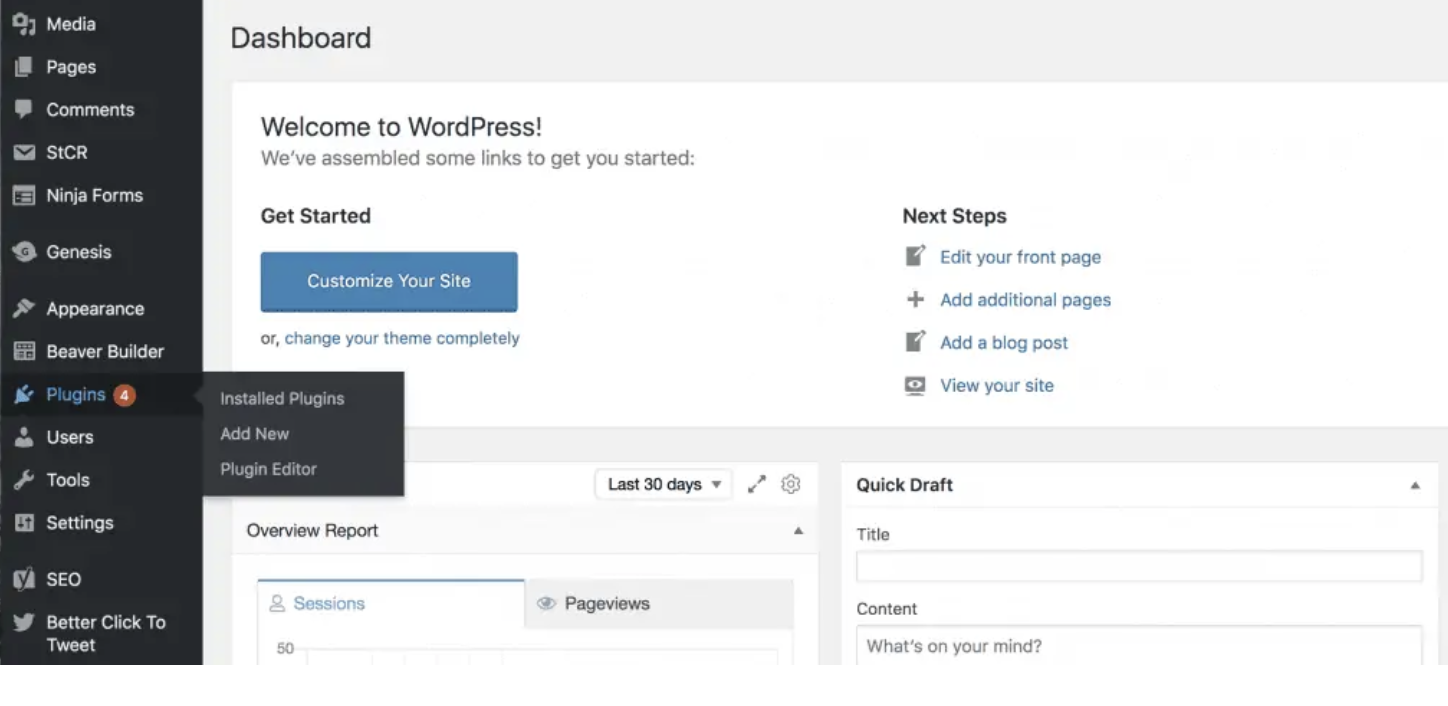How To..
Importance of Preschool Education for Your Children Studying in the Best School in Noida Extension
Preschool education is an essential part of developing children’s minds, and early education is a foundation for their learning. There are 4 key reasons why preschool education is so valuable in a child’s development. Education is an essential part of developing children’s minds, and early education is a foundation for their learning.
Early childhood education is an essential part of developing children’s minds. It is the foundation of their learning, which helps them develop effective problem-solving skills and critical thinking abilities.
It also promotes social development, language acquisition and cognitive development in preschool students. Early childhood education helps your child learn how to interact with other people by teaching them how to share toys, work cooperatively with others, listen attentively at home or school etc., which ultimately improves their self-esteem as well as social skills when they enter school later.
There Are 4 Key Reasons Why Preschool Education is So Valuable in a Child’s Development
Preschool education is an essential part of a child’s development. There are four key reasons why preschool education is so valuable in a child’s development:
1) Social Skills
Social skills are important for your child’s future. They need to learn how to play with other children, share and take turns, learn how to take criticism, and give compliments, as well as be a good friend. Having friends and learning how to play with them helps children develop social skills that can be used throughout their lives.
2) Language Development
The early years in the best school in Noida Extension are crucial for language development, as well as for understanding what language means and how it works. Learning new words at this age helps children understand more complex ideas later in life when they start school or university studies.
It also gives them confidence in their vocabulary! In preschool, children are taught to speak and read in their mother tongue. They also learn how to express themselves through gestures and body language.
This makes them more aware of their surroundings and enables them to interact effectively with other people. Education in the best preschool in Noida helps prepare children for future learning by building a foundation that will help them cope with stress and failure in school as well as build self-confidence and self-esteem through positive experiences such as playing games or singing songs together with friends at home on weekends!
3) Emotional Development
Children who have been exposed to emotional support from parents or other adults at home will have learned how important it is not only through words but also through actions – such as comforting someone when they are upset by showing empathy instead of shouting at them.
Emotional intelligence is the skill to recognize, evaluate, and manage one’s feelings. It is an essential component of self-development. It can help you understand how you feel and why you feel that way so that you can change your behaviour accordingly.
Emotional intelligence also allows children to recognize their feelings in others, which helps them understand other people’s perspectives more easily. This helps develop empathy along with social skills such as cooperation, communication, and conflict resolution skills (i.e., how they respond when someone else is upset).
Self-esteem development is another important component of emotional intelligence because it makes students feel good about themselves when they do well academically or behave well socially without being praised excessively by parents or teachers all the time!
4) Pre-Reading and Pre-Writing Skills
You should also be aware of the importance of pre-reading and pre-writing skills. These include the ability to recognize letters and sounds in words, as well as form letters correctly. These are important for learning to read and write, which is why your child must develop these skills through play and interaction with others as he or she grows up.
Early education at the best school in Noida Extension, can help your child learn these skills and more. Preschool education is a very important part of your children’s lives, as it will help them develop the skills necessary for success in school and beyond. These skills include:
- Social Skills (such as being able to interact with others)
- Linguistic Development (learning the skill to read and write)
- Emotional Development (ability to manage emotions)
Conclusion
When children begin attending the best preschool in India, they learn to be independent as they feel the need to complete fundamental tasks on their own. Children learn to take care of themselves, become responsible, and strive to be competent.
Although your child will acquire all these abilities at school, it is critical that you practise and play with them as much as possible for them to develop these talents. Parents are encouraged to play creative and skill-building activities with their children to help them become better and faster learners.
This is not an entire list, since your child is constantly learning new things, but it does provide a decent summary of the skills that a preschool-aged child should have. The list will also assist you in determining whether your desired preschool offers a skill-based learning curriculum.
Academic-focused preschools should be avoided. This is not developmentally appropriate, and as the preceding list illustrates, play is the most crucial thing for children throughout their early years. Academic study at a young age is counterproductive in the long term because it diverts attention away from more important subjects.
Make an informed selection about your child’s preschool, as it is about more than simply a school. In this article, we have discussed all the benefits of preschool education and how it can help your child. Also, if you want to know more about our school then visit their official website.
How To..
Best Tips Custom Home Builder and renovation company
Introduction
We know that custom home building can be a bit tricky. The process is time-consuming and requires a lot of patience, but the end result is amazing. There are so many details to take into consideration when designing your home, and finding the right contractor is essential if you want to get it exactly right. Here are five tips we’ve learned over the years from our experience working with contractors:
Build to your specifications
As a custom home builder, we know that your home is more than just a place to live. Your home should be built to your specifications and you can choose the floor plan, layout, and finishes to make it exactly how you want. You can also choose the size of the home and lot so everything fits together perfectly.
Budget for the extras
You’ll want to budget for the extras. This is especially true if you’re building a custom home or renovation project, where every little detail will be customized according to your specifications. You might think that all of your needs are covered by the amount of money that you’ve agreed on during negotiations with the builder, but then something unexpected comes up–like adding another room or changing an electrical outlet configuration–and it becomes clear that there will be extra costs involved. The good news is that these hidden costs tend not to be large; they just add up slowly over time as more work gets done on different parts of the house or remodel project.
The best way to avoid these sorts of surprises is by being prepared from the start: have a spreadsheet detailing all of these things so everyone knows exactly what kind (if any) alterations need doing later on down the line when needed; make sure everyone knows exactly why each change was made originally; discuss which parts need updating first (such as flooring); ask people what their thoughts might be about certain features before making final decisions about them…the list goes on! If you do this enough times then it becomes second nature–and much easier than guessing without knowing anything about how many rooms exist within each type available at various price points.”
Take your time to find the right contractor
- Find a contractor who has experience with your type of home.
- Ask for references and make sure to check them out thoroughly.
- Get a detailed quote from different contractors before deciding on one, so that you have an idea of what it will cost in advance.
- Ask if the contractor is licensed or registered with your state’s licensing board, since some people are better at certain types of jobs than others (and even within the same company).
Stay on top of trends in custom home renovations
When you’re building a home, it’s important to stay on top of trends in custom home renovations. As new products come out and old ones get replaced, you want to be sure that your renovation is up-to-date with the latest styles and technologies available.
To help guide you through this process, here are some examples of what we consider some of the hottest trends in custom home renovations:
Custom a guest bathroom is not easy.
The guest bathroom is the first room people see when they enter your home. It should be clean and inviting, easy to use, have a theme and look great.
Here are some examples of themes for the guest bathroom:
- Coastal décor with white tile floors, blue accents, coastal artwork on the walls and accessories like seashells or palm trees in vases around the room
- Countryesque decor such as dark wood cabinets with hardware in antique gold tones (gold hardware looks great with all types of colors)
Don’t go with the first contractor you find
When you’re looking for a custom home renovation company, there are a few things to keep in mind. The first is that you want to find one that has been in business for a while and has built up its reputation over time. The second thing is that you want to make sure the company has a good portfolio of work and can show examples of their work on display at their office or website. Thirdly, it helps if the contractor will be willing to work with you as an individual customer rather than just another client–there are some companies who only want people who have large budgets and don’t care about what happens after they sign on the dotted line (which means no follow-up calls).
Finally, if possible try not just anyone who offers services similar to yours; sometimes there may be reasons why other contractors aren’t worth working with like being too aggressive or not listening closely enough when clients talk about what they need.”
Conclusion
If you’re considering starting a home renovation project, there are many things to consider. You’ll need to find a contractor who can handle it all and makes sure your home stays in good shape throughout the process. But what do you need to know before hiring an architect or builder? Here are some tips for finding the right person for your job:
How To..
Investment management is the process of managing assets

Investment management is the process of managing assets in order to achieve specific investment goals for an individual or organization. It involves making investment decisions, implementing those decisions, and monitoring the performance of the investments over time. In this article, we will explore the key concepts and strategies of investment management.
The investment management process can be broken down into three key steps: asset allocation, security selection, and performance monitoring. Asset allocation involves determining how to divide investment funds among different asset classes, such as stocks, bonds, real estate, and commodities. This decision is based on an investor’s risk tolerance, investment objectives, and time horizon.
Security selection involves choosing
which specific securities to invest in within each asset class. This decision is based on a variety of factors, including fundamental analysis of the company or asset, technical analysis of market trends, and valuation metrics such as price-to-earnings ratio and dividend yield.
Performance monitoring involves regularly reviewing the performance of the investments and making adjustments as necessary. This includes monitoring market conditions, tracking the performance of individual securities, and evaluating the overall performance of the portfolio.
There are a number of different investment strategies that can be used in investment management. These strategies can be broadly categorized into two groups: passive and active.
Passive investment strategies involve investing in a diversified portfolio of securities with the goal of achieving the returns of a particular market or index. This is done through the use of index funds or exchange-traded funds (ETFs), which are designed to track the performance of a specific market or index. Passive strategies are often used by investors who want to minimize costs and take a long-term investment approach.
Active investment strategies
On the other hand, involve making investment decisions based on a more hands-on approach. Active managers may use fundamental or technical analysis to select individual securities, or may make sector bets based on market trends. Active strategies are often used by investors who are looking to beat the market and achieve higher returns.
One of the most important aspects of investment management is risk management. Managing risk involves understanding the risks associated with each investment and developing strategies to mitigate those risks. This can include diversifying the portfolio across different asset classes and sectors, using hedging strategies such as options or futures, and setting stop-loss orders to limit losses in a particular security.
Another important concept in investment management is asset allocation. Asset allocation involves dividing investment funds among different asset classes in order to achieve a desired level of risk and return. The optimal asset allocation for an investor will depend on their individual risk tolerance, investment objectives, and time horizon.
In addition to traditional asset classes such as stocks and bonds, alternative investments such as real estate, commodities, and private equity can also be used in asset allocation. These investments can offer unique risk and return characteristics and can be used to diversify a portfolio beyond traditional asset classes.
Investment management
Also involves understanding the tax implications of different investments. This includes understanding the tax treatment of different types of income, such as capital gains and dividends, and using tax-efficient investment vehicles such as individual retirement accounts (IRAs) and 401(k) plans.
Finally, investment management involves understanding the role of fees and expenses in investment returns. The fees associated with different investment vehicles can vary widely, and it is important to understand the impact of these fees on investment returns over the long term. This includes understanding the fees associated with mutual funds and ETFs, as well as the fees charged by investment advisors and other financial professionals.
In conclusion
Investment management is a complex process that involves a variety of strategies and concepts. The key to successful investment management is understanding your individual investment goals, risk tolerance, and time horizon, and developing a strategy that is tailored to your specific needs. This may involve a combination of passive and active investment strategies, as well as alternative investments and tax-efficient vehicles. By working
How To..
The Pros and Cons of Duct Cleaning in Melbourne
Duct cleaning is the process of removing debris, dirt, and other contaminants from the heating, ventilation, and air conditioning (HVAC) system of a building. While duct cleaning has become increasingly popular in recent years, there are both pros and cons to consider before deciding to have your ducts cleaned. In this guide, we will discuss the pros and cons of duct cleaning Melbourne.
Pros of Duct Cleaning
- Improved Indoor Air Quality
The main benefit of duct cleaning is improved indoor air quality. Over time, dust, dirt, and other contaminants can accumulate in the HVAC system and circulate throughout the building. This can lead to poor indoor air quality, which can cause respiratory problems and other health issues. Duct cleaning can remove these contaminants and improve the overall air quality in the building.
- Increased Energy Efficiency
When debris and contaminants build up in the HVAC system, it can restrict airflow and make the system work harder to heat or cool the building. This can lead to higher energy bills and more frequent repairs. By removing these contaminants through duct cleaning, the HVAC system can work more efficiently, reducing energy costs and extending the life of the system.
- Reduces Allergens and Irritants
Duct cleaning can also reduce allergens and irritants in the air, such as pet dander, pollen, and mold. This can be especially important for people with allergies or respiratory issues.
- Improved System Longevity
Duct cleaning can help to extend the life of the HVAC system by reducing wear and tear on the system. This can lead to fewer breakdowns and repairs, saving money in the long run.
Cons of Duct Cleaning
- Cost
Duct cleaning can be expensive, especially for larger buildings with complex HVAC systems. The cost of duct cleaning will depend on the size of the building and the complexity of the HVAC system. However, the cost can be justified by the benefits of improved indoor air quality, increased energy efficiency, and improved system longevity.
- Unqualified Contractors
One of the major risks of duct cleaning is hiring unqualified contractors who may not have the necessary expertise or equipment to properly clean the HVAC system. This can lead to ineffective cleaning or even damage to the system. It’s important to do your research and choose a reputable contractor with experience in duct cleaning.
- Disruption to Business Operations
Duct cleaning can be a disruptive process, especially for businesses that operate during regular business hours. The cleaning process can be noisy and may require the system to be shut down temporarily. However, many duct cleaning companies can work around business schedules to minimize disruption.
- No Guaranteed Results
While duct cleaning can improve indoor air quality and energy efficiency, there is no guarantee that it will completely eliminate all contaminants from the HVAC system. Some contaminants may be difficult to remove or may reappear over time. However, regular duct cleaning can help to minimize the buildup of contaminants and improve the overall air quality in the building.
Conclusion
Duct cleaning has both pros and cons, and it’s important to carefully consider these factors before deciding whether or not to have your ducts cleaned. While duct cleaning can be expensive and may disrupt business operations, it can also improve indoor air quality, increase energy efficiency, and extend the life of the HVAC system. To minimize risks, it’s important to choose a reputable contractor with experience in duct cleaning and to carefully evaluate the costs and benefits of the service.
-

 Education2 years ago
Education2 years agoCreating Engaging And Relevant Content As A Literacy Influencer
-

 Internet3 years ago
Internet3 years agoWhat Are the Differences Between WP Rocket, RocketCDN and Cloudflare
-

 How To..3 years ago
How To..3 years agoWhat Is Better Than Safety Deposit Box
-

 Mobile Phones3 years ago
Mobile Phones3 years agoKnow About the New Upcoming Mobile Phones
-

 SEO2 years ago
SEO2 years agoWordPress: How to Fix ‘Add New Plugin Menu Not Showing
-

 Software2 years ago
Software2 years agoWhy is Content Workflow Software Necessary for Content Production
-

 Digital Marketing1 year ago
Digital Marketing1 year ago13 Possible Reasons Why Your Google Ads Are Not Showing Up
-
TVs2 years ago
All You Need to Know About the Toman Tokyo Revengers












